What factors are fuelling the rebirth of the PC?
Windows 10 isn't the only contributor
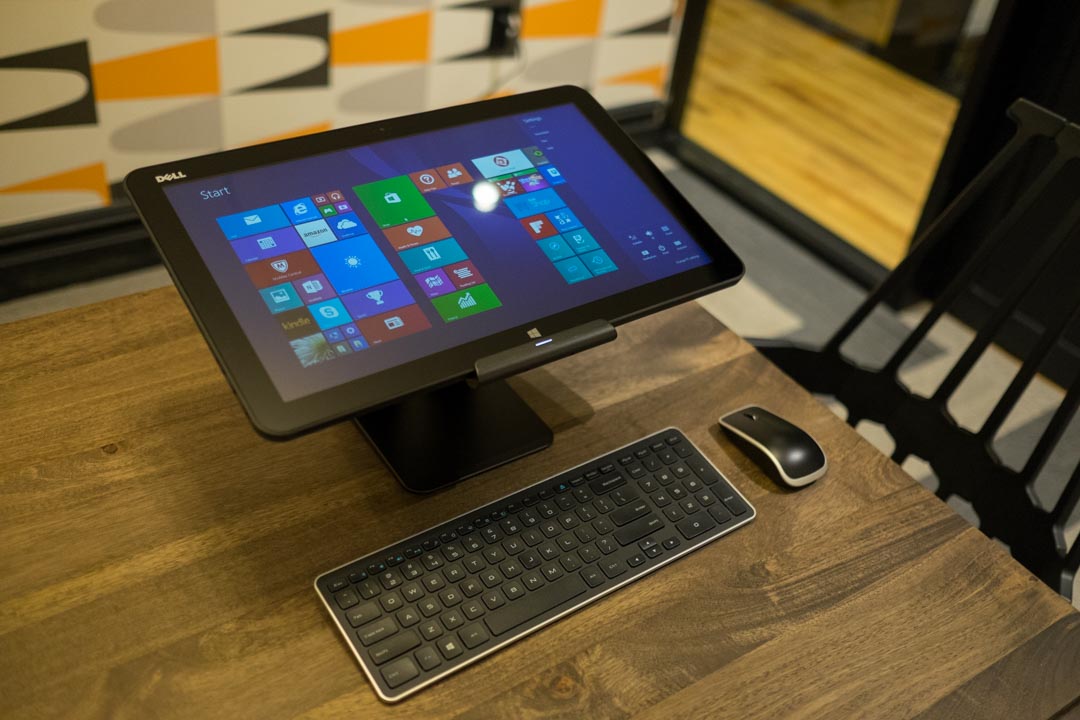
Sign up for breaking news, reviews, opinion, top tech deals, and more.
You are now subscribed
Your newsletter sign-up was successful
Introduction
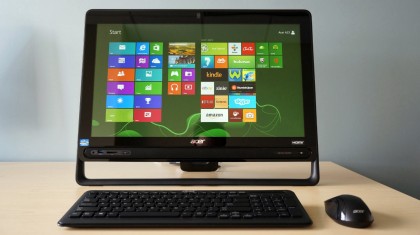
They were once the apple of everyone's eye, but in recent years PCs have been experiencing a steady decline in the face of a slew of new form factors and the imperious silver march of Apple's iEverything. However, of late the initial spurts of a recovery have turned into a full-on rebirth fuelled by Microsoft's new OS plans, the thirst for PC gaming, and a whole number of other related advantages.
Even with the rebirth in full swing there are teething problems and Windows 10's imminent release is by no means a guaranteed success, and it only takes a slight change in consumer habits for the PC market to tilt the wrong way on its precarious axis.
You just need to glance at the International Data Corporation's figures from March 2015 to see a projection of worldwide PC shipments falling by 4.9% in 2015, down from the original figure of a 3.3% drop. It's still far lower than what doom-mongers were predicting earlier this decade, but shows that there is still much to do.
Right now, however, things look good, and the following article will outline how the PC market is going from strength to strength.
- In partnership with Microsoft, powered by the HP Spectre 360
Windows 10
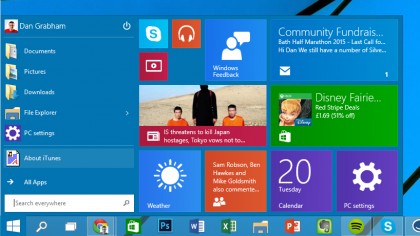
Many average PC users will be sick to their back teeth of Microsoft's conveyor belt of OS releases that have dominated the PC landscape, and they'd be right to pay little or no attention to Windows 10 in that respect. That attitude couldn't be further from the truth, though, and what we have on our hands won't be just another Vista, XP, Windows 7 or Windows 8.1 clone. It will trigger off a revolution in the PC sector.
That's because Microsoft is a very different beast to the company it was even 12 months ago. Ever since Satya Nadella was promoted to CEO following a long search to find Steve Ballmer's successor, he has gone about changing the company as a whole. The PC market is the key battleground that Microsoft is focusing on, and the rebirth of Windows as a completely different OS means the sector as a whole will continue on its path to recovery.
Of course, PC manufacturers do have their part to play, but a stable OS that is free and gets updates on a regular basis can only help to keep the interest of vendors in terms of continuing to push new machines. In the same way, the OS will help to reinvigorate consumer confidence in PCs, and all this working together sets a solid foundation for the continued rebirth of the PC.
Sign up to the TechRadar Pro newsletter to get all the top news, opinion, features and guidance your business needs to succeed!
Another thing that Microsoft will do with Windows 10 is to implement a truly cross-platform approach that makes the OS look the same whether it's on a tablet or smartphone. This will encourage Windows smartphone and slate customers to stay loyal to their PCs thanks to the fact that the experience will be uniform. And of course all this makes it easier to continue doing tasks across the PC and other devices. A demonstration earlier this week at the Microsoft Ignite conference showed off exactly how similar it will look, and this is yet another of the many ways that Windows 10 is doing its bit to push PCs.
Enthusiasm for touchscreens has waned
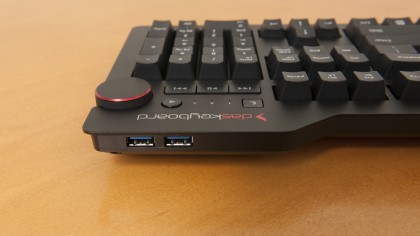
Microsoft pinned much of its misplaced hope on touchscreens when it released Windows 8 without a Start button, as it wrongly thought PC users didn't need a mouse or keyboard any more.
It's the opposite of that vision that is giving PCs the power to fling themselves back into the mainstream as consumers begin to realise that the limited functionality available on tablets without a mouse and keyboard just isn't sufficient. That seeps over into the business world where users need the mouse and keyboard setup that was the mainstay of non-Windows 8 PCs, and Windows 10 has a great deal more support for this.
Rise of the Chromebook
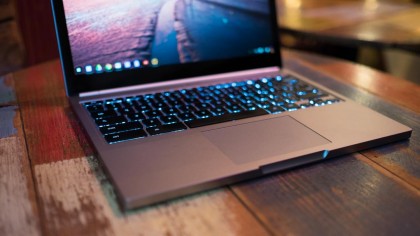
Let's face it: everyone wants a computer and nobody wants to pay a huge amount of money to own one. Luckily there are plenty of companies squeezing every last drop of value from the various processors out there and this is yet another way the PC revival is being fuelled. Google is one firm pushing this policy through its Chrome OS which is the driving force behind the growing band of Chromebooks that serve as a complementary rival to Windows 10 PCs.
Granted, Chromebook sales are only worth around 1% of all PC sales, according to ABI Research, yet Gartner's latest figures showed sales reaching 5.2 million in 2014, which was up a whopping 79% when compared to the figure for 2013. That number is expected to rise once again between now and 2017, reaching 14.4 million by then. It isn't consumers who are the most interested party of all, however, as education is where the bulk of the money is being spent.
Gartner estimates that some 85% of US Chromebook sales in 2013 were made to the education sector and enterprise is another area being targeted, as these notebooks are especially useful for businesses wanting to cut down spending by using cloud computing.
"So far, businesses have looked at Chromebooks, but not bought many," said Isabelle Durand, principal analyst at Gartner. "By adopting Chromebooks and cloud computing, businesses can benefit; they can shift their focus from managing devices to managing something much more important – their data."
Google further strengthens this assertion by claiming that its web apps have everything that businesses require, and there's no need for them to spend big on classy Apple desktops or brand spanking new Windows PCs when they can use Google Apps for Work. Whether this will actually ring true for large numbers of firms remains to be seen, but the fact that the Chromebook is driving sales just shows that it's helping revive the PC sector as a whole.
Mushrooming cloud usage

Anyone with a Chromebook will know how much of an integral part of the package the cloud is, and this is yet another way that PCs are becoming even more relevant. Because quite literally everything your enterprise needs can be hosted in the cloud, this means that you can still use PCs company-wide without having to worry about issues like running out of memory.
Consumers, meanwhile, can host just about any content in their cloud account and then access it on any machine. Whether the device in question is a smartphone, tablet, desktop PC or laptop, the same experience is presented across each one.
Documents are a fine example of a situation where you want to use a PC and the likes of Microsoft Office, Evernote and Apple's iWork suite make it a very simple matter to edit documents on a PC or any other device.
The rise of PC gaming

It's not only hardcore gamers that are getting the most out of gaming on PCs, where the steady stream of titles and unbeatable hardware make it one of the major contributors to the revival of the PC market as a whole.
Whilst many like to compare consoles and PCs side-by-side when it comes to gaming, this is sometimes a bit wide of the mark considering that PCs can be constantly upgraded when games require it. Consoles, meanwhile, have the same power from the outset going forward, so gamers either have to wait for developers to take full advantage of what's within the box, or wait it out for the next iteration of the console in question for a hardware upgrade.
The level of game customisation and personalisation open to PC owners makes being a PC gamer similar to being a car enthusiast who is constantly attempting to push the boundaries for a more powerful and efficient machine. PC gamers will also soon be able to benefit from affordable 4K monitors to go alongside their gaming rigs, and thus push them even further away from ever needing to touch a console again.
Steam is also still at its absolute best on PC and titles such as Grand Theft Auto V and Project Cars continue to push the boundaries for PC gaming, thus the industry will remain highly relevant across a large tranche of users.
It's the new TV
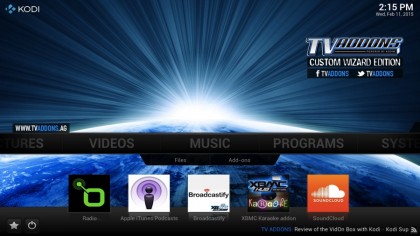
Cable or satellite TV is continuing to become even less relevant as time goes on, with consumers filling the void by using cable cutting services to get their TV in a different way, and owning a PC is one of the best ways to take advantage of this. You only need take the example of Google's popular Chromecast TV dongle. Using it in conjunction with a PC allows you to play just about any content whether it be local on your PC or through a tab on Google Chrome.
Most modern PCs come with an HDMI port as standard meaning you can stream just about anything from your computer, and programs like Kodi make this an even more luxurious experience by providing skins that make the app look exactly the same as your Sky+ or Virgin Media TiVo box. With a little bit of online reading you can even turn your PC into a TiVo box by using the PVR settings.
And don't forget that Steam Machines, which are on the way, will allow anyone to play PC games on their home TV and add another new element to the rebirth of the PC market.